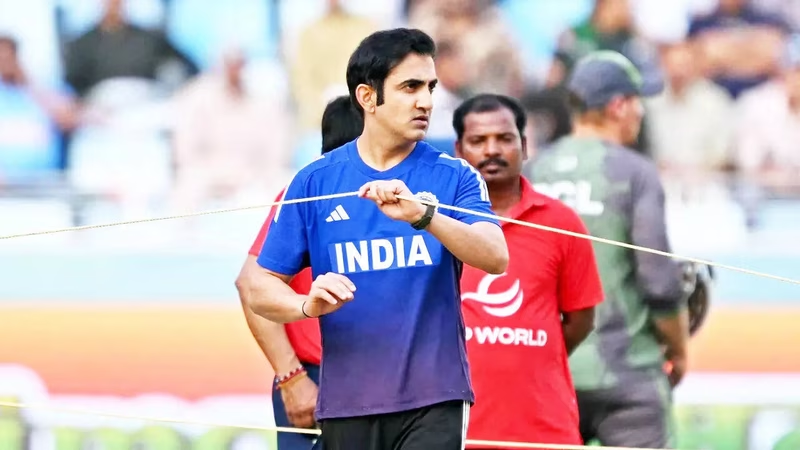In a rare and fiery public rebuke, India’s newly appointed head coach Gautam Gambhir has slammed a former World Cup-winning cricketer—widely reported to be K. Srikkanth—for harshly criticizing young fast bowler Harshit Rana. Gambhir’s message was clear: protect young talent, don’t exploit them for online clout.
“Stop using a kid to run your YouTube channel,” Gambhir said, visibly frustrated during a media interaction ahead of India’s T20 series against the West Indies. His comments have ignited a much-needed conversation about the ethics of public commentary in the age of digital media.
Why Harshit Rana Became the Center of Controversy
Harshit Rana, the 23-year-old right-arm pacer from Delhi, was recently named in India’s T20 squad following consistent performances in domestic cricket and the IPL. However, his selection drew sharp criticism from certain ex-players, who questioned his readiness and experience on national platforms—including social media and YouTube videos.
One such critique, described by Gambhir as “shameful,” reportedly targeted Rana’s bowling action and temperament in a sensationalized tone designed to attract clicks. For Gambhir, that crossed a line.
Gambhir’s Defense: Merit, Mental Health, and Moral Duty
Standing firmly behind his player, Gambhir emphasized three core principles in his response:
- Selection by merit: “Harshit earned his place. He’s bowled 145+ kph consistently and taken wickets under pressure.”
- Mental well-being: “These boys are 23, not 33. One viral video can break their confidence for months.”
- Moral responsibility: “If you’re a former player with a platform, use it to guide—not to shame.”
His comments reflect a growing concern within Indian cricket circles about the toxic blend of nostalgia, sensationalism, and monetization that often drives ex-players’ online content.
The Bigger Picture: Cricket Commentary in the Digital Age
The incident highlights a broader tension in modern cricket: the shift from traditional punditry to influencer-style content creation. While platforms like YouTube and Instagram offer former players new avenues to stay relevant, they also risk prioritizing engagement over integrity.
| Traditional Commentary | Digital Commentary (YouTube/Instagram) |
|---|---|
| Fact-based analysis | Often driven by hot takes and controversy |
| Editorial oversight | Self-published, minimal accountability |
| Focus on team/player growth | Focus on views, likes, and monetization |
Gambhir’s outburst may signal a turning point—where current team management pushes back against reckless criticism that could harm emerging talent.
What This Means for Indian Cricket’s Future
With a young squad being groomed for the 2026 T20 World Cup and beyond, protecting players like Harshit Rana isn’t just about one selection—it’s about building a culture of support, not scrutiny for sport.
As Gambhir put it: “If you can’t add value, stay silent. Don’t use a kid’s name to grow your subscriber count.”
The cricketing world will now watch closely: will this moment spark a course correction in how former players engage with the game they once represented?
